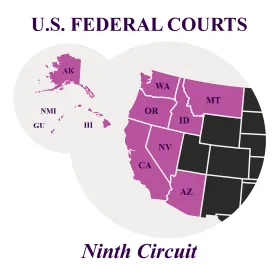Conagra Brands recently emerged victorious when Judge William H. Orrick of the U.S. District Court for the Northern District of California granted summary judgment in its favor, tossing claims that the company disguises the fat and calorie content of its Parkay Spray vegetable oil spray product (“Parkay”) with artificially small serving sizes. Allen v. Conagra Foods, No. 3:13-cv-01279 (N.D. Cal. Aug. 12, 2020).
According to plaintiffs, Parkay contains a significant amount of fat and calories, which Conagra avoids disclosing by using a serving size “so ridiculously small” that Conagra is able to “round down the disclosed amount of fat to zero.” Plaintiffs alleged Parkay’s “0 fat,” “fat free,” and “0 calories” claims therefore violated California’s CLRA, UCL, and other state consumer protection laws.
The case turned on the categorization of the product under FDA regulations, which set different serving sizes for “Fats and Oils: Butter, margarine, oil, shortening” as opposed to “Fats and Oils: Spray types.” Treating Parkay as a “Spray type” product, Conagra labels it with a serving size of 0.25 grams. According to Plaintiffs, Parkay should be categorized as “Fats and Oils: Butter, margarine, oil, shortening,” for which the FDA requires a larger serving size of one tablespoon.
The Court explained that to the extent Plaintiffs’ claims sought to impose requirements beyond those required by FDA regulations, they were preempted, noting “[w]hether or not the plaintiffs would ultimately be able to prove that the Parkay label misleads or deceives consumers . . . the federal regulations set the standard for food labeling.”
Plaintiffs argued Parkay “must belong in the butter/margarine category [with the larger serving size] because (i) Conagra intends Parkay Spray to be used as a buttery topping, (ii) Conagra markets Parkay Spray as an alternative to butter for foods like corn and bread, and (iii) consumers in fact use Parkay Spray as a topping.” Conagra responded that Parkay consists of soybean oil suspended in water, is dispensed via a spray pump, and is therefore literally a “spray-type fat and oil.”
Based on the summary judgment record, the Court found it was not possible to conclude Parkay belongs in the butter/margarine category. The Court noted FDA describes the “butter, margarine, oil, and shortening” grouping as consisting of four types of fats and oils “used interchangeably in food preparation.” Plaintiffs’ own expert testified to the myriad differences between Parkay and butter/margarine, and stated Parkay is a poor substitute for butter or margarine in baking or sautéing. Relying on this testimony, the Court found Parkay cannot be “used interchangeably” with butter or margarine, and therefore the plaintiffs’ claims sought to enforce state law requirements that are “not identical to” federal food labeling requirements, and were preempted.
This decision underscores the FDA’s broad regulatory authority over the labeling of food and beverage products, which cannot be circumvented by bringing claims under state law. Watch this space for further developments.





 />i
/>i

